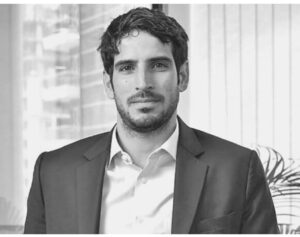WEG reports developing custom smoke extraction motors
JARAGUÁ DO SUL, Santa Catarina, Brazil, 7 July 2022: Motor manufacturer, WEG said it has supplied custom motors for the new smoke extractor product line from ECE Cogemacoustic, a global ventilation expert based in France. Making the announcement through a Press release, WEG said it has engineered a customised version of the W22 motor to ensure the ECE Cogemacoustic equipment can preserve air quality in public environments in the event of a fire.
According to WEG, the new W22 motor is designed specifically for this market segment, and is able to work in extreme conditions. The motor can guarantee an effective and reliable operation in a temperature up to 400 degrees C during a two-hour time frame, while operating in accordance with international standards, the company claimed.
The line of motors has several optional features, such as the possibility of supplying the terminal boxes loose connected to the motor through flying leads, or supplying the motor without a fan or fan cover, in order to make the product even more compact, WEG said.
According to WEG, the creation of the customised motor came as a result of a partnership between WEG Portugal and ECE Cogemacoustic, facilitated by WEG group subsidiary, WEG France. WEG Portugal manufactures smoke extraction motors for the European market at its facility in Porto, and specialises in this particular range, the company said.
“Particularly in the event of fire, these products are intended to operate mostly on subways and tunnels,” said Patricia Guedes, Head of Marketing and Communication, WEG Portugal, registered as WEGeuro Indústria Eléctrica. “These motors are essential to ensure the proper operation on high temperature environments, contributing to the safety of people and preservation of the air quality.
“Our supply meets the customer project requirements for this demanding market segment, which strives [for] a very high degree of security and reliability. Once more, this achievement proves WEG’s expertise in supplying customized solutions to major worldwide projects.”
JCI: Investments in sustainability have rebounded to pre-pandemic levels
CORK, Ireland, 12 April 2022: Johnson Controls (JCI) announced findings from its 15th annual Energy Efficiency Indicator Survey, which revealed that 62% of organizations surveyed expect to increase investments in energy efficiency, renewable energy or smart building technology in 2022, indicating a return to pre-pandemic levels.
JCI said the latest report by the United Nations Intergovernmental Panel on Climate Change advised that global scale transformation is urgently needed to combat climate change; however, its Energy Efficiency Indicator Survey found that organizations are still facing challenges to accelerate their sustainability efforts in key areas. Almost two-thirds of survey respondents say they struggle to scale sustainability initiatives across buildings, geographies or business units.

“In the face of the multiple and continuous shock waves of the last two years, it is very encouraging to see that building owners and operators are driving forward the kinds of investments that deliver the resilience needed to grow their business and attract and retain the best talent,” said Katie McGinty, Vice President & Chief Sustainability and External Relations Officer, JCI.
“Whether it is the damage delivered by climate-charged destructive natural events, or the health threat of the pandemic, or now, the stark demonstration of the insecurity of world energy supplies, it is clear that taking action to cut energy demand while decarbonizing and cleaning the air are core strategies for companies, governments and institutions to not only survive but to thrive.
Our innovative technologies in heat pumps and our OpenBlue digital platform, plus our Net Zero as a Service partnership offering, are exactly the right tools at the right time for leaders determined to stay well ahead of challenges and deliver new opportunities for their business or organization.”
JCI said the survey revealed that planned investment in energy generation or storage has grown significantly over five years, likely in response to the global focus on decarbonization, and as part of that effort, electrification.
More than a third of respondents plan to replace fossil fuel heating equipment with heat pump technology in the next year, which is seven per cent more than what was implemented in the year prior, the company said. Notably, thermal energy storage jumped from 27% to 42% in the last five years, the company said. More than half of respondents implemented electric energy storage in the past year, the company added.
JCI said the survey also found that the United States and Europe still lead the way in every metric of green building planning. The United States had the most respondents who had already achieved green building certification and expect to have a net-zero-energy or carbon building in the next 10 years, JCI said.
Europe had the most respondents planning to attain green building certifications and the most respondents who have established public energy or carbon-reduction goals, with United Kingdom leading with 46% established goals, JCI added.
Compared to its global counterparts, significantly more respondents in the United States plan to implement measures, such as building controls improvements, onsite renewable energy and energy management process, such as ISO 50001, JCI said. Of the countries surveyed, the United Kingdom, France and Japan have the most respondents who expect to increase investment in energy efficiency, renewable energy or smart building technology over the next year, the company said. Still, to reach global sustainability and environmental goals, the world must work collectively to plan for a more energy efficient future and make investments today for the generations to come, it added.
Although global-scale transformation is necessary to course-correct on climate change, organisations are facing barriers to pursuing sustainability initiatives, JCI said. Almost half of the respondents surveyed say their top barrier to pursue energy and building technology improvements is either a lack of funding to pay for improvements (25%) or uncertainty in their return-on-investment (23%), the company said.
Additionally, more than half of respondents pointed to a lack of technology as one of the hindrances to scaling sustainability efforts, JCI said.
The pandemic has also prompted organizations to rethink their technology investment decision-making, JCI said. Protecting the health and safety of building occupants during the coronavirus pandemic was the second most significant driver of investments globally, it said. Additionally, 65% of respondents performed an indoor air quality assessment last year, it added.
Respondents to the survey also said improving occupant health and wellness overall and improving life safety and security were important decision-making factors, JCI pointed out. Over the next 12 months, almost 60% of organizations plan to invest in fire and life safety system and security system improvements to their buildings, it said. Long term, more than two-thirds of organizations believe data analytics and cybersecurity will have an extremely or very significant impact on the implementation of smart buildings over the next five years, it added.
The survey revealed that actionable policies are also important for progressing energy efficiency goals, JCI said, adding that 85% and 72% of respondents, respectively, reported that performance benchmarking, certifications and performance standards for energy codes are critical to improving energy efficiency efforts.
JCI said its Energy Efficiency Indicator Survey collected responses from 1,000 participants globally between November and December 2021.
AESG in global expansion drive with 45% growth target for 2021

Saeed Al Abbar
Dubai, UAE, 06 January 2021: Consultancy, engineering and advisory firm, AESG announced the appointment of global directors for each of its lines of business, as well as the expansion of the role of the company co-founder, Saeed Al Abbar, to group-wide CEO. Making the announcement through a Press release, the firm said the move follows the establishment of offices in the UAE, Saudi Arabia and the United Kingdom, and successful delivery of large-scale projects across the Middle East, Europe and Asia. The consolidation of service teams under unified global divisions, AESG said, will enable it to deploy the best skills and resources from all its international offices on projects worldwide.
Outlining how this strategy bolsters the company’s ambitious plans for the upcoming year, Al Abbar said: “2021 is set to be a significant growth year for AESG, as we build on the momentum we have established. While the Middle East will remain a focal market for us, we are also seeing steady growth in our business in the UK and Europe, as well as a surge in opportunities in Asia. Our reorganization perfectly positions us to capitalize on these opportunities, as we draw on the brightest and most qualified talent from each market to drive our success across the vast geography of our operations.”

Phillipa Grant
AESG said that under the direction of its newly appointed global directors it is looking to further grow its teams. The company said it has budgeted for a 45% increase in headcount, with the objective of scaling to 140 professionals through 2021. The company also revealed its intention to replicate in Asia the strategy that has proven highly successful in the Middle East and Europe by establishing a regional headquarters in Singapore.
AESG said its newly appointed global directors will be tasked with leading teams, driving the growth of their service lines and ensuring best practices are implemented across regions. Two AESG Global Directors have been promoted from within the company, with Phillipa Grant and Nivine Issa now taking on the roles of Global Director of Sustainability and Global Director of Environment, respectively. Grant and Issa have also taken up equity partnership in the firm, demonstrating their long-term commitment to AESG and highlighting the company’s leadership in gender equality in the field.

Nivine Issa
With its appointment of Peter Downer to the position of Global Director of Fire and Life Safety, AESG said it is also looking to draw from the experience and expertise of a business leader who has worked with large multinational construction consultancy firms. An industry veteran of over 35 years – 15 of which have been in senior leadership positions – Downer has worked extensively on projects across the Middle East, Asia and Australia, AESG said. Prior to joining AESG, he served as the Senior VP at Jensen Hughes, where he led the Asia region, which included offices in China, Malaysia, Korea, Singapore, Hong Kong and Macau.

Peter Downer
Al Abbar said: “AESG has successfully navigated the challenges of 2020, and as developers look to enhance and optimize the efficiency, sustainability, safety and manageability of their investments, our comprehensive portfolio of specialist services is now more relevant than ever. We maintain a highly optimistic outlook with confidence that our commitment to maintaining service excellence through our ongoing expansion will further validate our position as a leading global consultancy firm.”


